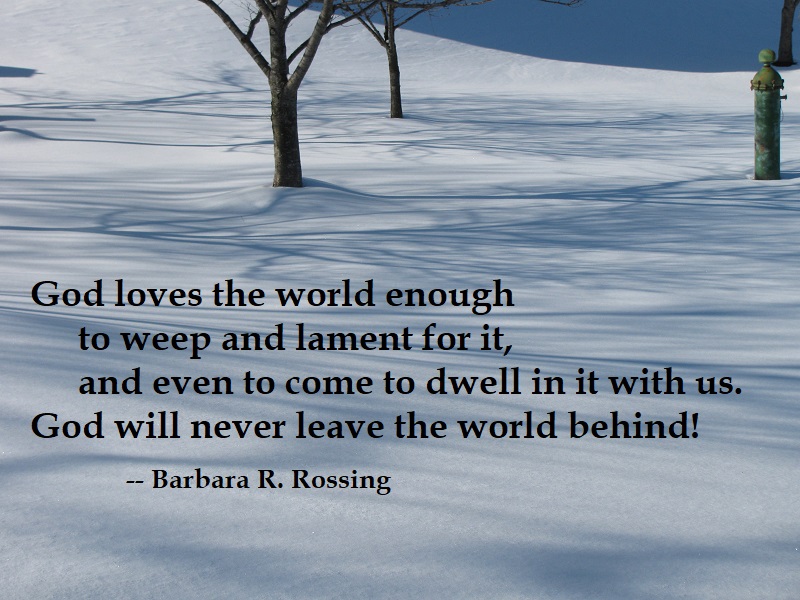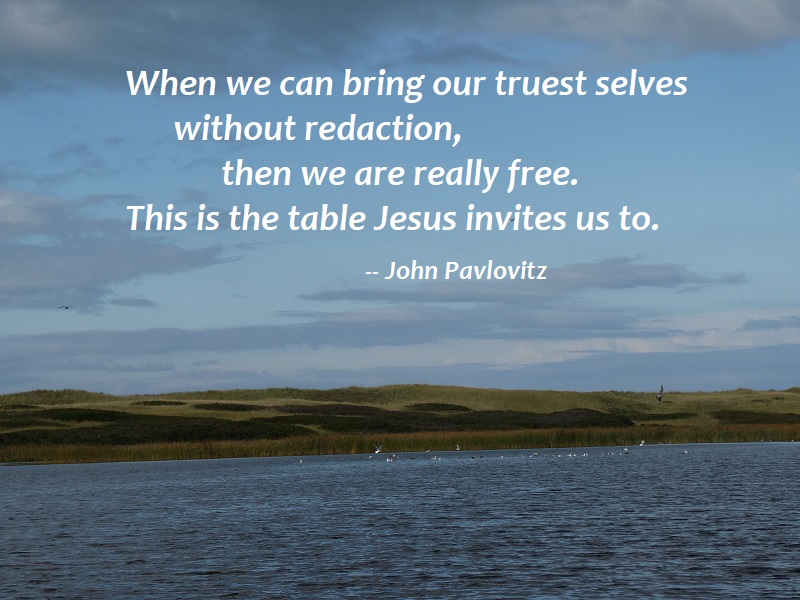
But “woe” is not really a helpful translation for the Greek word. Its sense is rather one of lament — like a mourner keening in grief, wailing out repeated cries of “Oh, oh, oh” at the death of a loved one. Spanish Bibles simply translate the sound as “Ay, ay, ay.” I would translate the word as, “Alas.” The meaning of the Greek word ouai is first of all a cry of pain, like the word “ouch” in English. It can mean “woe,” but it can also express deep lamentation or mourning, as in the laments of the merchants and kings over Rome in chapter 18, “Alas, Alas, Alas, for the great city!” — the same Greek word ouai.
It is as if God is crying “ouch” or “alas” on behalf of the suffering world: “Alas for the inhabitants of the earth.” It is a subtle but significant shift in direction because “Alas” conveys God’s sympathy in a way that “woe” does not.
This is important because dispensationalists use Revelation’s “woe” verses to argue that God has consigned the world to cataclysmic destruction. Their arguments contradict the overall message of Revelation. In the tradition of the Exodus story and the Exodus plagues, Revelation makes clear that God sympathizes, grieves, and laments over the world’s pain, even while threatening plagues to bring about the world’s liberation from injustice.
As we ponder the message of Revelation, especially its difficult middle sections, we must remember the overarching promise that God still loves the world and cries out for its liberation. In the slain Lamb Jesus, God shares our cries and comes to deliver us. God does not curse the world. God loves the world enough to weep and lament for it, and even to come to dwell in it with us. God will never leave the world behind!
— Barbara R. Rossing, The Rapture Exposed, p. 129
Photo: South Riding, Virginia, March 6, 2015









